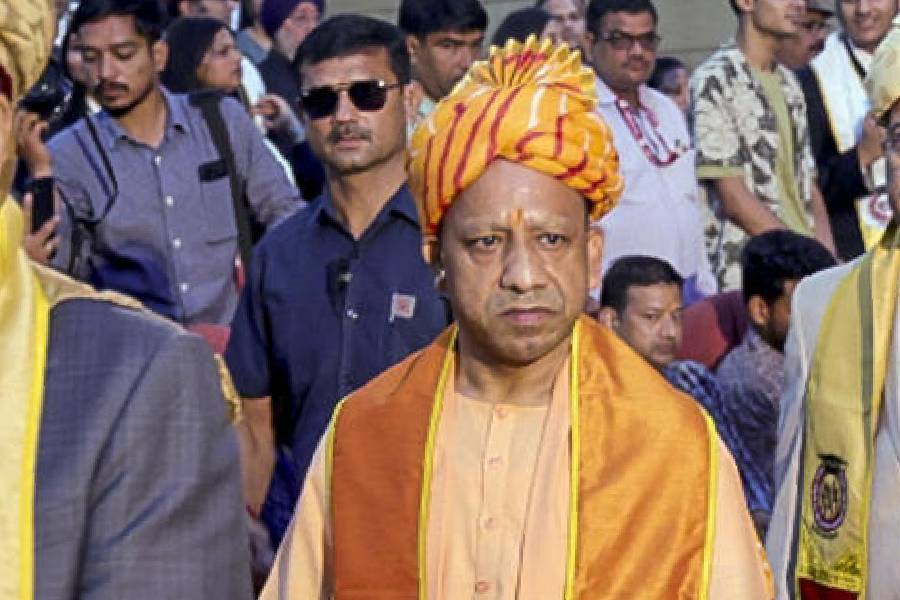Every backstab from Yogi Adityanath’s opponents will be met with a frontal attack. Such appears the message from the sadhu turned chief minister’s camp.
Deputy chief minister Keshav Prasad Maurya had on Monday quipped that “the organisation is always bigger than the government”, looking to blame Adityanath for the BJP’s general election setback from Uttar Pradesh without naming him.
The hitback, articulated through the senior party leader from western Uttar Pradesh, Sunil Bharala, came in the form of a demand for the resignation of state BJP chief Bhupendra Chaudhary.
“The indication from honourable deputy CM Sri K.P. Maurya is to hold the organisation responsible for the defeats. So, respected state president Bhupendra Chaudhary should immediately take moral responsibility for the losses and resign,” Bharala posted in Hindi on X on Wednesday.
As social media users kept reposting it, the grapevine had it that Bharala was resisting pressure from central BJP leaders to delete the post.
Maurya’s comments were widely believed to have the endorsement of central leaders, peeved at the poor general election showing from Uttar Pradesh and keen to be rid of a man they see as a hurdle to Union home minister Amit Shah’s ambitions of succeeding Prime Minister Narendra Modi.
While Chaudhary is considered close to the national leadership, party sources said Bharala, not particularly known as a loyalist of the chief minister, put up the post after Adityanath reached out to him.
“The BJP has such a tradition — former state presidents Kalraj Mishra and Vinay Katiyar had resigned (following defeats in elections),” Bharala, national convener of the BJP’s little-known slum cell and former chairman of the state labour welfare board, wrote in his post. “A true worker puts the organisation and the party before his own chair.”
Adityanath’s supporters claim that he ends up “growing politically” whenever he faces opposition from within the BJP, or turns rebellious.
They like to remind people that when the BJP fielded Adityanath from the Gorakhpur Lok Sabha seat for the first time, in 1998, many in the party had opposed the move citing how he was more active in the Hindu Mahasabha.
But he did not just win the seat but represented it five straight times before resigning to become chief minister in 2017.
As MP, Adityanath would during every Assembly elections recommend a host of candidates from eastern Uttar Pradesh to the party bosses. In the seats where the party spurned his nominees, his Hindu Yuva Vahini — a feared militia — would openly support Independent candidates.
But the party never dared discipline him, thanks to his stature and following as the mahant of the Gorakhnath temple.
In 2017, the BJP was forced to appoint him as chief minister although Maurya was state BJP chief at the time and considered the frontrunner to head the government.
“Adityanath knows how to deal with adverse situations in the BJP. He has always
challenged the party and grown in political stature as a consequence,” a political observer in Gorakhpur told The Telegraph.
“He may not have himself reacted to Maurya’s broadsides, but there are people waiting just for a signal from him to tear Maurya apart. Bharala’s comments are a small glimpse of what might happen if Maurya and his ilk don’t stop targeting Adityanath at the behest of some central BJP leaders. Adityanath would prefer a head-on collision because it helps him weed out hurdles.”
The observer added: “It’s a tribute to Adityanath’s image building that a debate has started whether he should be the heir to Modi.”










